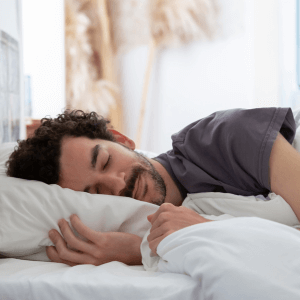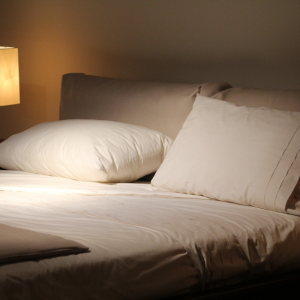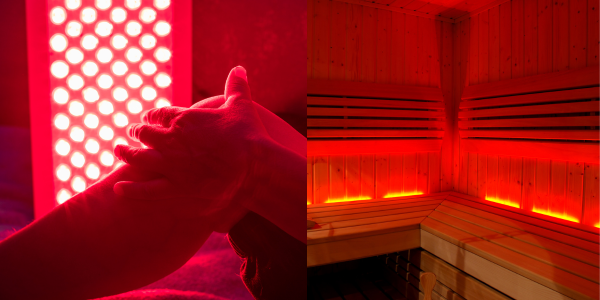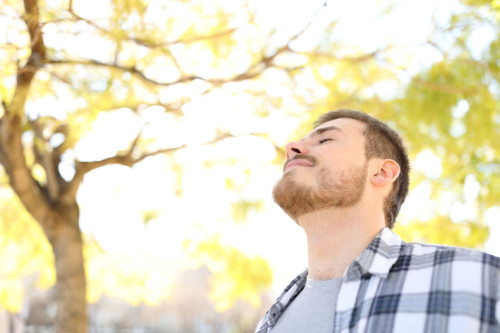Sleep
Why We Need Sleep
Sleeping well is one of life’s necessities and is needed to maintain good health. In fact, without it, our health is sure to fail! Sleep allows our body to rest, to repair itself, and to cleanse itself. Our body performs different functions when we are awake than it does when we are resting. If we want to be ready to face a new day and be our best, we need to rest! It just isn’t an option, and when we cheat ourselves on sleep, we deprive our body’s account, and sooner or later, that account is going to need to be replenished. The body’s job is to maintain health; it will steal from Peter to pay Paul, and when Peter has no more to give, things start to collapse.
How Much Sleep Do We Need
Well, how much we need actually depends on our age. Babies and toddlers require the most. Most babies require at least 16 hours per day. Toddlers seem to need around 11- 12 hours per day. School-aged children, as well as teenagers, need at least 10 hours per day. Adults and older people need at least 7 – 8 hours of sleep daily. Those of us blessed with children or nieces and nephews are not surprised at how much kids sleep during their growth spurts. When you are a baby, toddler, or teenager, the body continually evolves, which is why it requires so much of it. Think of all the things that the body needs to accomplish from those first steps through puberty. If we want to maintain optimal health, which also includes a healthy mind, we need it!
Sleep Cycles and Sleeping Well

Our sleep is broken down into cycles. Each cycle takes approximately 90 minutes to complete. These cycles are a combination of two various stages – Non REM Sleep and REM (rapid eye movement).
During our 90-minute cycle, we drift through the various stages of non-REM and REM. Non-Rem consists of a very light sleep to a very deep sleep. This very deep stage of Non-Rem Sleep is when those delta waves kick in, making it difficult for anyone to wake up. When we reach this deep stage, our breathing, brain waves, heart rate, blood pressure, and body temperature decrease or slow down. During this deep stage, our muscles and tissues are repaired, and hormones are secreted to balance the body.
REM sleep begins after the non-Rem Stage of deep sleep, and it begins the portion of our cycle where rapid eye movement occurs and our dreams become vivid. Our muscles become more rigid and our breathing and heart rate can vary based on our dreams. They say the REM cycle is also where our mind processes and files the day’s activities and offers the most benefit for the replenishing of the mind.
Completing the 90 Min Sleep Cycle
Don’t underestimate the 90-minute sleep cycle. Experts say that a restful night isn’t just about how many hours you rest. It is also about completing the 90-minute sleep cycles. It is said that a good night’s rest should consist of transitioning and completing several 90-minute cycles. They say adults and older people need between 7 – 8 hours per night.
In fact, if you schedule your sleep pattern in 90-minute sleep cycles, you will feel better if you sleep 6 hours or 7 1/2 hours as opposed to 5 hours or 8 hours. Six or 7 1/2 hours complete the 90-minute cycle, whereas 5 or 8 hours wake you up in the middle of a cycle. If you are having trouble waking up or are fatigued in the afternoon, review how many hours you have slept and see if you possibly woke up in the middle of one of your cycles.
These cycles are so important they have books about them, calenders, and apps to make sure you make the most of them and obtain a good night’s rest. Check out the following book: The 90-Minute Baby Sleep Program: Follow Your Child’s Natural Sleep Rhythms for Better Nights and Naps or Google’s App The Sleep Calculator or the ITunes App The Sleep Cycle Alarm Clock.
Sleep Disorders
Many people struggle with sleep disorders that can and often do prevent them from sleeping well, achieving REM sleep, and completing their 90-minute cycle. These disorders include:
- Insomnia
- Narcolepsy
- Restless Legs Syndrome
- Sleep Apnea
The above disorders can pose a great threat to your overall health. If you feel you could have one of these disorders, you should seek assistance.
Health Problems Associated with Not Sleeping Well
Scientists believe the more deep stages and REM stages our bodies do not achieve, the less our body is able to repair itself. This weakens our overall immune system and can create chemical imbalances throughout the body. Lack of sleep increases our risk for the following problems.
- Many Chronic Diseases
- Diabetes
- Cardiovascular problems, including Heart Disease and Stroke
- Obesity
- Depression
- Cancer
- Increased Risk of Accidents
What can you do to get a Good Night’s Rest
Many things can interrupt or disturb your patterns and keep you from sleeping well. Many people who deal with physical symptoms such as pain or medical conditions such as asthma may find it difficult to rest when they are not feeling well. Anxiety or depression can also impact how well you sleep. Too much light in your bedroom, pets on the bed, alcohol can all have an effect on how well you rest.
You may have problems sleeping if you have difficulty waking up, need a daily nap, or fall asleep while watching tv in the evening. To make sure you are getting a good night’s rest, try to go to bed and get up at the same time each day, making sure you are completing your 90-minute cycles. Ensure your bedroom is quiet and dark and that you find its enviroment relaxing. Also, I have noticed that if I eat a late dinner, I tend not to rest as well, so I try to avoid eating large meals before bedtime.
Address Sleep Disorders
One can see why these disorders should be addressed sooner rather than later and why you should take steps to improve your sleep. If you take the time to exercise, drink healthy water, and eat food the way nature intended, then don’t cheat your health by not getting enough rest and making sure you are sleeping well! Your life depends on it!
If you have trouble falling asleep, consider trying one of the following to help. When I can’t close my eyes and rest, I get up and use the chi machine. This helps me unwind and turn off my mental chatter. I will also often use my Sleep Aromatherapy Inhaler. You may also want to try some essential oil blends like Refuge Calming Blend so you can create a pillow spray or add a few drops to a Kleenex and put it under your pillow. You may also want to try an herbal supplement like Herbal Sleep. Here’s To a Good Night’s Rest!
References:
https://www.cdc.gov/sleep/
https://www.psychologytoday.com/blog/between-you-and-me/201307/your-sleep-cycle-revealed
https://www.huffingtonpost.com/2014/03/07/your-body-does-incredible_n_4914577.html
https://serendip.brynmawr.edu/exchange/node/2078







